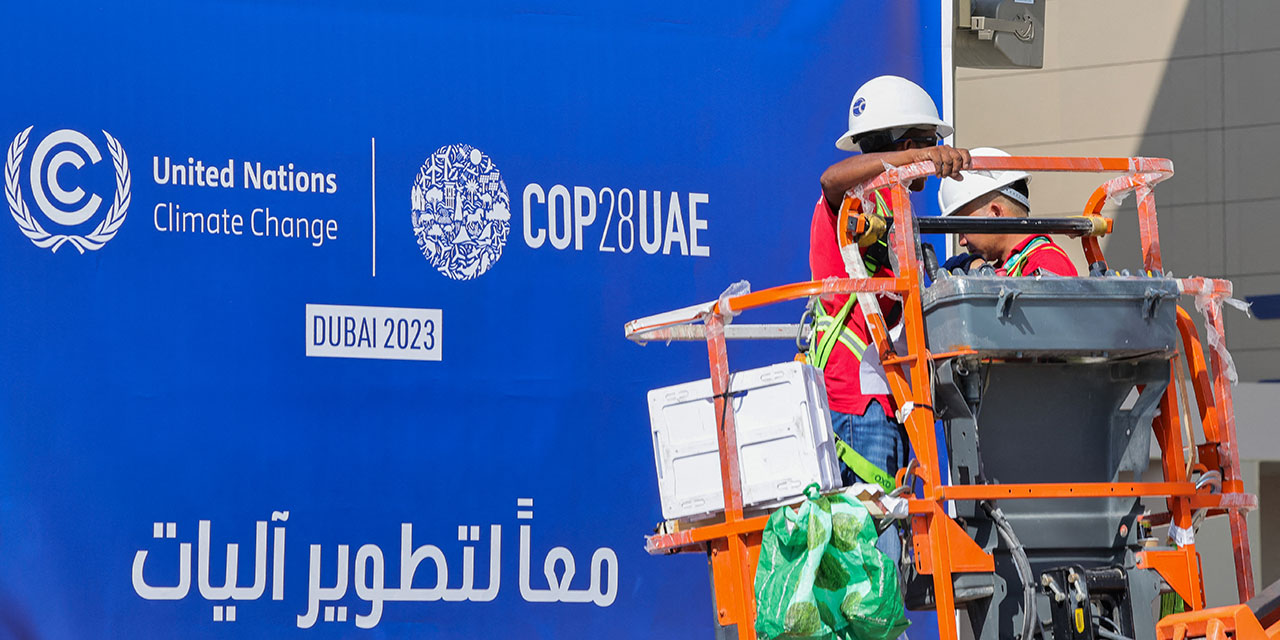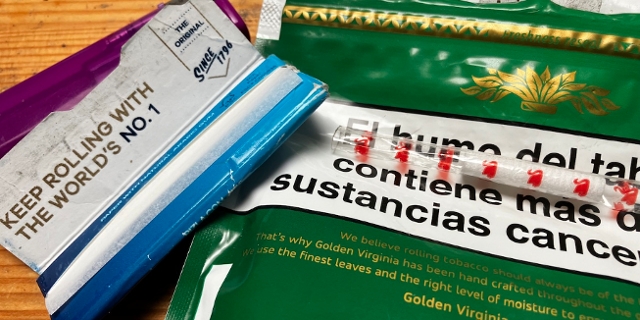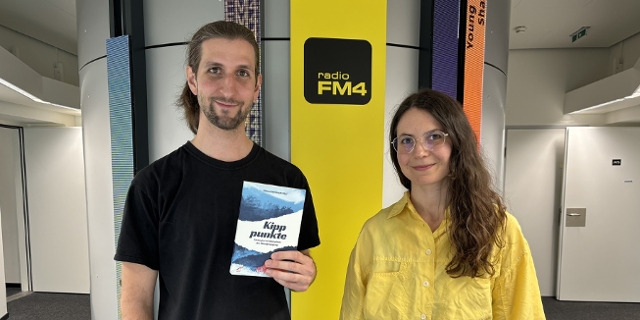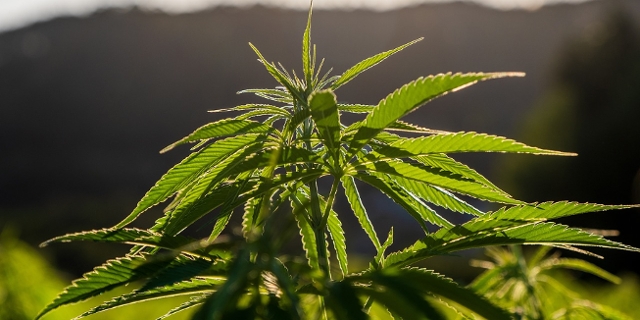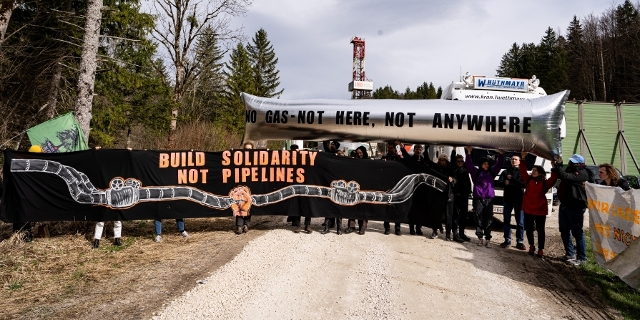Using the COP28 Presidency To Sell Oil?
Online you’ll find a glossy promotional video from the oil company Adnoc promising to scale up oil production for its “2030 strategy” to “help meet the world’s growing energy demand for oil, gas, refined products and petrochemicals”.
That’s not surprising. Just as tobacco companies sell cigarettes, oil companies sell oil. But it is rather discombobulating that the president of Adnoc, the United Arab Emirates’ national energy company, is the man tasked with being president of COP28, the meeting that should be trying to decarbonize our world.
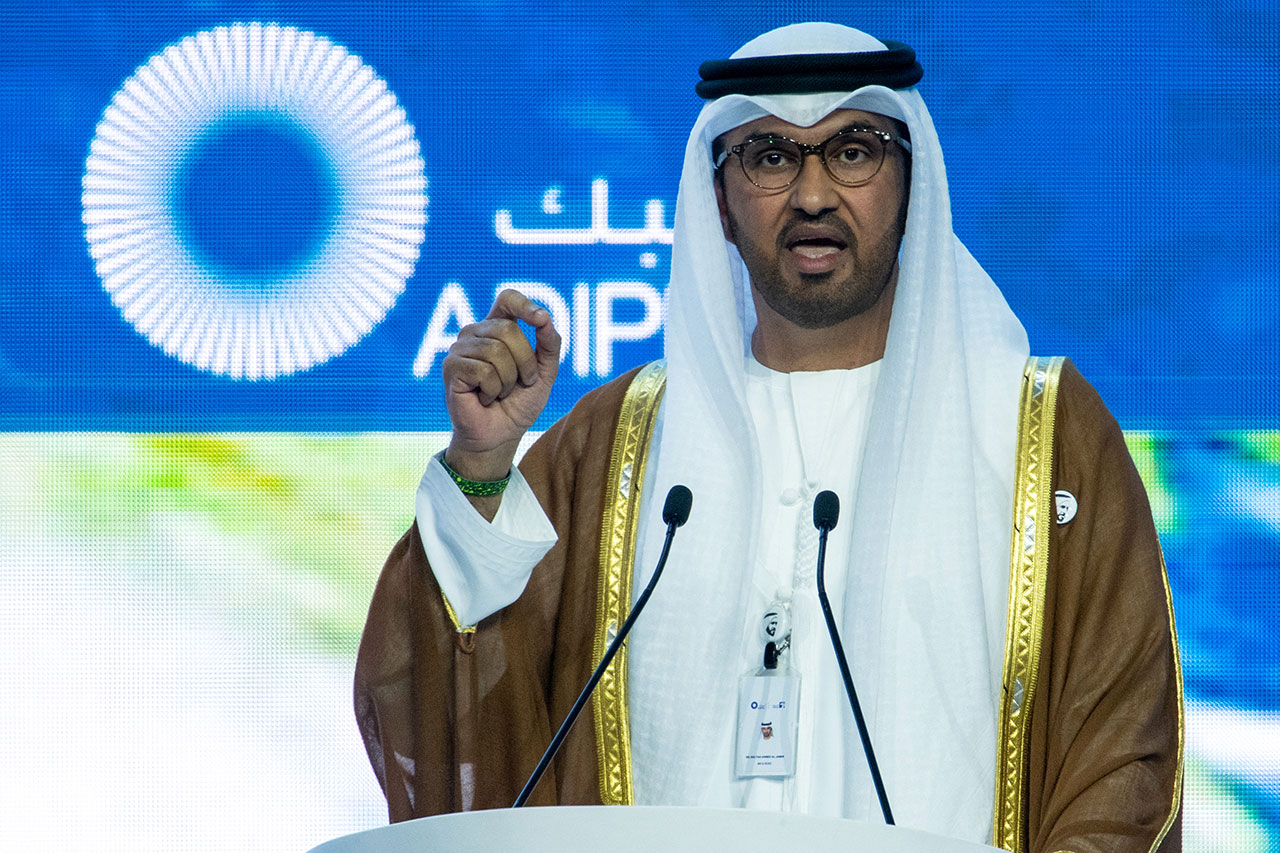
APA/AFP/Ryan LIM
Humility? Responsibility? Urgency?
Of course, you can play two different roles in life. COP28 President/Adnoc CEO Sultan Al Jaber is by all accounts warm and personable and intelligent so many tried to take him by his word when he announced, after his controversial appointment in January that “as we prepare to host Cop 28, we approach this role with humility. A deep sense of responsibility and a great sense of urgency.”
But there are now grave doubts about that sense of responsibility, not to mention humility and urgency. Research from the Centre for Climate Reporting, led by the investigative journalist Ben Stockton, who has dug up some documents showing what al-Jarba has apparently been up to in recent months.
“What we found out was basically that the COP28 President had planned to use meetings with foreign governments to lobby on oil and gas deals,” Stockton told me.
A Whistleblower
Ben has worked together with the BBC to verify the authenticity of the documents which were handed over by a rather brave person. “A whistleblower who I was in touch with, came forward with these documents, basically concerned about the direction of COP and about the influence of Adnoc and its influence on the COP28 team.” Stockton says “And they shared with me this cache of internal documents and emails and meeting records, which really basically told this incredible story.”
So the allegation is that Al-Jaber using the COP process to do some business deals on the side for fossil fuels, something that former US vice-President Al Gore has described as “utterly appalling”.
Al Jaber today denied any wrong-doing.
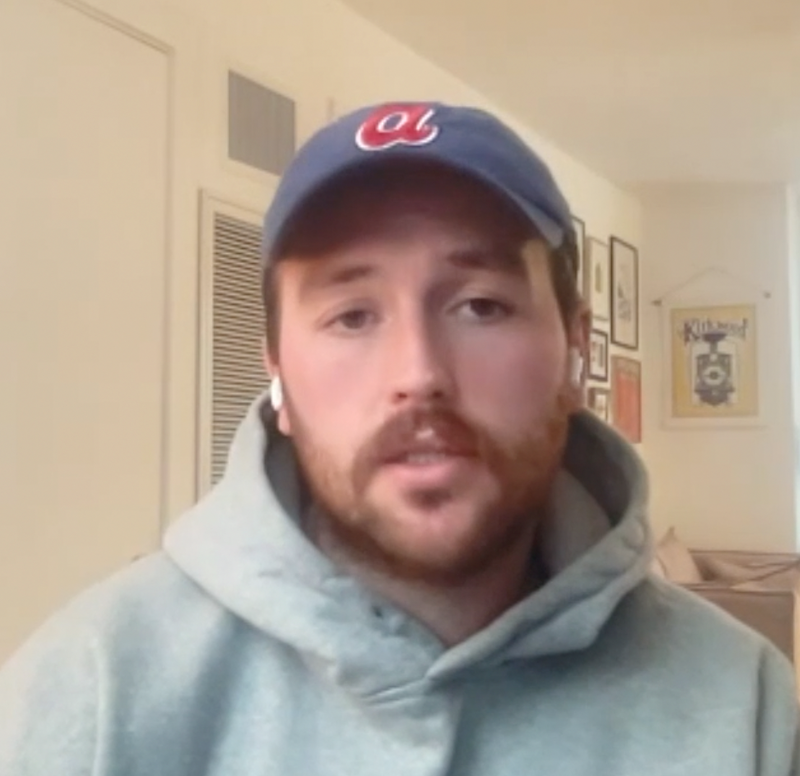
Chris Cummins
“The real significance of those findings are that there have been a number of conflict of interest concerns around Sultan Al Jaber’s Presidency ever since he was appointed back in January,” says Stockton. “This is really like a realization of those concerns”
There has been a lot of skepticism about the suitability of the United Arab Emirates – one of the world’s top 10 oil producing nations – to host a climate summit, particularly as is so intent on expanding its fossil fuel production.
3-1 Investment in Fossil Fuels vs Renewables
Mia Moisio is climate policy expert at New Climate Institute and Climate Action Tracker. Her job is to examine different countries climate pledges and how realistic they are. The UAE has signed up to the goal of tripling renewable energy capacity, but a look at the figures shows that fossil fuels still rule the roost there.
“For example, last year, the national oil company had announced that they would invest $150 billion to expand oil and gas business in the next five years. And that compares to just an announcement to invest $50 billion, so one third of that, in renewable energy over the next seven years - an even longer time period.
A COP Overshadowed By Controversy?
This story has already cast a shadow over these crucial climate talks. So is the United Arab Emirates now discredited as a COP host?
“I do have mixed feelings,” says Moisio. “I think the UAE could take on as a major oil and gas producer. It could take on a positive role. It’s not as bad or as obstructive in the climate negotiations as some other large oil producers, like, for example, Saudi Arabia. But clearly it’s not progressive enough to get the kind of deal that we need to really limit global warming to 1.5 degrees and give a clear signal that we need to end new fossil fuel investments.”
Publiziert am 29.11.2023







